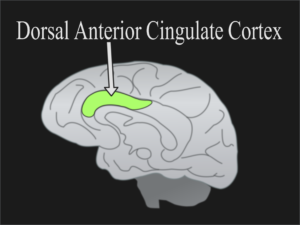5 Ways Hypnosis Can Relieve Your Anxiety for Good
Need anxiety relief? This might your best choice . . .

Most people call a doctor or a psychotherapist when they need anxiety relief. But there’s one more option that is often faster and more cost-effective. It’s also a non-addictive alternative to medication or months of therapy: hypnosis.
Hypnosis is fun and relaxing. More importantly, studies show it has a proven track record of effectiveness for anxiety relief. It also works for panic attacks, phobias and post-traumatic stress disorder (PTSD).
When you think about it, this makes sense. Hypnosis is known for being relaxing. You’ve seen the movies where the hypnotist starts swinging a watch and saying, “You are getting very sleepy.” Hypnosis really does create an extremely peaceful state. In fact, some of my clients say they find hypnosis is more relaxing than the best massage they’ve ever had.
Click Here to Schedule Your FREE Consultation
Here’s how hypnosis helps achieve long-term anxiety relief:
- Hypnosis helps retrain the brain to stop stress, panic and worry in triggering situations. How? These experiences (e.g. riding an airplane, taking a test) are rehearsed in the imagination under hypnosis. They are allowed to bring up a small amount of the physical and emotional sensations that normally arise. Then, while still under hypnosis, calming techniques are used so that you become comfortable enough to keep going and accomplish the imaginary task. When anxiety shows up during the same situation in real life, you use the coping skills you practiced to complete the task. Once your brain sees that you made it through the experience safely, it stops sending anxiety symptoms for that situation.
- Brain scans show that hypnosis actually simmers down the part of the brain that worries. During hypnosis sessions, you will be taught how to do this for yourself. As reported in Time Magazine, researchers at Stanford University saw that when you are hypnotized, brain activity decreases in the part of the brain responsible for worrying (the dorsal anterior cingulate). This aspect of hypnosis makes it particularly useful for people with generalized anxiety disorder and anyone else who worries a lot. It is easy to learn self-hypnosis and take advantage of this type of anxiety relief on your own at home.
- Hypnosis creates a personal “relaxation button” so you can instantly relax and turn off worry when anxiety is triggered. The first part of any hypnosis session uses hypnotic techniques to relax you. At the end of a session, you are given post-hypnotic suggestions to link this deep relaxation to a simple word, image or gesture. When stress or anxiety shows up, use this link to recreate the state you were in when you were hypnotized. This will give you anxiety relief and help you keep going with your life.
- Hypnosis is the fastest way to find and heal the original cause of anxiety. For most people, anxiety is the brain’s way of protecting them from re-hurting something that caused them pain in the past. Because hypnosis helps you directly connect to the subconscious, it’s easier to discover what that original injury is. It works faster than psychotherapy. Then, while still working in the subconscious, hypnotic techniques can be used to heal that wound. This creates permanent anxiety relief in the areas of your life that the wound affected.
- Hypnosis helps to release stuck emotions from past events that may cause anxiety. As mentioned above, pain from the past can be at the root of anxiety. Often there are unconscious emotions that were never fully felt at the time of an event. These feelings are “stuck” as sensations in the body. They need to be briefly noticed and then released in order to create permanent anxiety relief. Anxiety can show up as a form of protection from being aware of these stuck emotions. Once released, these sensations no longer cause anxiety symptoms. And the good news is that you don’t actually need to experience these difficult emotions directly. There’s no crying, yelling or becoming afraid. Through hypnosis, they are let go symbolically, using pictures or physical sensations in the imagination.
Click Here to Schedule Your FREE Consultation
In addition to all that, hypnosis can help you with a bunch of other things people who need anxiety relief often deal with: overcoming insomnia, developing better boundaries, building confidence, and accomplishing all the positive things you want for your life.
If any of these possibilities for anxiety relief sound good to you, you’re probably thinking “I’m sure it works for some people, but will it work for me? I’m not sure I’m hypnotizable.”
That’s an important question. In fact, it’s so important that I created a quiz so you can you figure out whether you are hypnotizable or not. Click HERE to find out whether hypnosis for anxiety will work for you.

Leave a comment